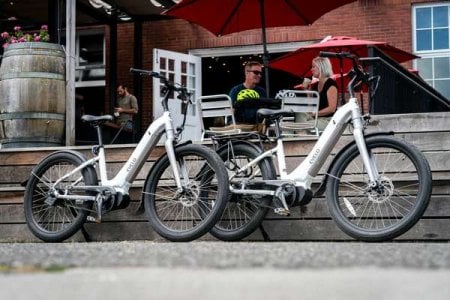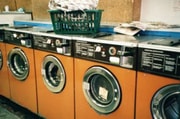Coroner launches investigation towards one item behind multiple fires
By
Danielle F.
- Replies 11
As we embrace the convenience of modern technology, we often overlook the potential hazards lurking within everyday gadgets.
A recent surge in incidents prompted a coronial inquest in one state.
The NSW Coroners Court announced an inquest to delve into the dangers posed by lithium-ion batteries.
This investigation came after an alarming number of fires linked to the item.
In the past year, these batteries sparked 275 fires, which resulted in 26 injuries and 876 evacuations.
The inquest, led by State Coroner Teresa O'Sullivan, should shed light on the previous incidents and explore possible preventative measures in the future.

Lithium-ion batteries have been powering various electronic devices and even modes of transportation like electric bikes and scooters.
Sales for electric mobility devices skyrocketed by 322 per cent in 2022.
However, with this rapid growth came a significant rise in fire-related incidents, making lithium-ion batteries the fastest-growing cause of fires in NSW.
The timing of the inquest is particularly pertinent as the holiday season approaches.
'At this time of year, when people are buying Christmas gifts for their loved ones, I would urge everyone to follow the safety advice on Lithium-ion batteries,' Coroner O'Sullivan warned.
'Make sure you only buy products that comply with the Australian standard. Use an approved charger, charge while you're at home and awake and unplug when the battery is full.'
Households were also advised against using mismatched devices and to steer clear of cheap, substandard products.
'Store lithium battery devices away from exits and sleeping areas so you have time to escape if a fire does start,' Coroner O'Sullivan added.
'If there is a strange odour, vapour, smoke, or a strange sound coming from a lithium battery-powered device, get out and call triple-0.'
In response to the growing threat, the NSW government introduced new regulations for the sale of electric mobility devices.
As of August, electric bikes, scooters, hoverboards, and skateboards would be classified as 'declared electric devices', requiring them to conform to internationally recognised product standards.
By February 2025, vendors selling non-compliant devices could face hefty fines of up to $825,000.
The coronial inquest into lithium-ion battery fires could be a critical step towards ensuring consumer safety and mitigating the risk of future incidents.

Have you experienced any issues with lithium-ion batteries at home? Do you have safety tips to share with everyone? Your insights could be invaluable, so share them with us in the comments section below.
A recent surge in incidents prompted a coronial inquest in one state.
The NSW Coroners Court announced an inquest to delve into the dangers posed by lithium-ion batteries.
This investigation came after an alarming number of fires linked to the item.
In the past year, these batteries sparked 275 fires, which resulted in 26 injuries and 876 evacuations.
The inquest, led by State Coroner Teresa O'Sullivan, should shed light on the previous incidents and explore possible preventative measures in the future.

Electric bikes have gained popularity over the recent years as an alternative mode of transport. Image Credit: Pexels/Team EVELO
Lithium-ion batteries have been powering various electronic devices and even modes of transportation like electric bikes and scooters.
Sales for electric mobility devices skyrocketed by 322 per cent in 2022.
However, with this rapid growth came a significant rise in fire-related incidents, making lithium-ion batteries the fastest-growing cause of fires in NSW.
The timing of the inquest is particularly pertinent as the holiday season approaches.
'At this time of year, when people are buying Christmas gifts for their loved ones, I would urge everyone to follow the safety advice on Lithium-ion batteries,' Coroner O'Sullivan warned.
'Make sure you only buy products that comply with the Australian standard. Use an approved charger, charge while you're at home and awake and unplug when the battery is full.'
Households were also advised against using mismatched devices and to steer clear of cheap, substandard products.
'Store lithium battery devices away from exits and sleeping areas so you have time to escape if a fire does start,' Coroner O'Sullivan added.
'If there is a strange odour, vapour, smoke, or a strange sound coming from a lithium battery-powered device, get out and call triple-0.'
In response to the growing threat, the NSW government introduced new regulations for the sale of electric mobility devices.
As of August, electric bikes, scooters, hoverboards, and skateboards would be classified as 'declared electric devices', requiring them to conform to internationally recognised product standards.
By February 2025, vendors selling non-compliant devices could face hefty fines of up to $825,000.
The coronial inquest into lithium-ion battery fires could be a critical step towards ensuring consumer safety and mitigating the risk of future incidents.
Key Takeaways
- NSW Coroner Teresa O'Sullivan prompted an inquest into the safety of lithium-ion batteries after being linked to numerous fires in the state.
- Lithium-ion batteries, commonly found in electric mobility devices and gadgets, have started 275 fires over the past year.
- The inquest should explore preventative measures related to lithium-ion battery incidents.
- The NSW Government also started imposing stringent measures to check lithium-ion-powered devices.







